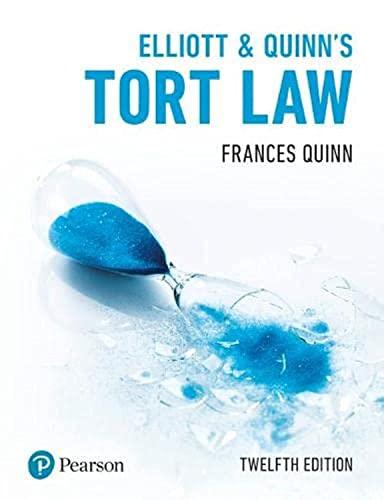Question
GEC, an Australian manufacturer of electrical appliances, entered into a contract on 15 February 2008 to sell 10,000 pressurised rice-cookers to Asian Appliances (Thailand)
" GEC, an Australian manufacturer of electrical appliances, entered into a contract on 15 February 2008 to sell 10,000 pressurised rice-cookers to Asian Appliances (Thailand) Pty Ltd ("AAT"), a buyer in Bangkok. Delivery of the goods was to be CIF Bangkok during the month of March, but no later than 20 March 2008.
Payment for the goods was to be made by letter of credit incorporating the UCP600 (2007). The letter of credit was to be issued by Laem Thong Bank ("LT Bank") and advised by CBA in Sydney. Drafts were to be drawn on LT Bank. Acceptance of the seller's drafts by LT Bank was to be against "the usual CIF documents and certificate of origin".
Despite its concerns about AATs financial situation, LT Bank issued the letter of credit, which was opened on 25 February. GEC received a letter advising the credit on 27 February.
The goods were delivered to the carrier on 17 March and loaded on board the ship the following day. While the goods were being loaded, it was discovered that the anti-corrosive coating on many of the rice cookers had begun to chip away, and that a number of the cookers had begun to show signs of rust. When the carrier informed GEC that a claused bill of lading would be issued, the manager of GEC realised that the company would not be able to deliver any replacement cookers before 20 March. He therefore assured the carrier that everything would be OK and offered to "handsomely reward" the carrier if a clean bill was issued. The carrier agreed to issue a clean, on-board bill of lading, in return for the bribe money.
CBA checked all the shipping documents carefully, informed GEC that they were acceptable, and paid the monies owing under the letter of credit. The documents were then forwarded to Bangkok. LT Bank informed AAT that the documents had arrived; and would be held as security by the bank until payment was received. By this stage, LT Bank had become aware that the buyer's financial position was even more precarious than earlier thought.
In fact, AAT was declared bankrupt on the following day. As a result, LT Bank decided to retain the bill of lading and other documents. The bank also advised CBA that no reimbursement or other payments would be made under the credit.
When the ship arrived in Bangkok, it was discovered that the pressure-cookers had rusted even further during the voyage, rendering most of the cookers useless.
Required: Advise LT Bank of its legal position in the above situation."
I confusing what is the solution for this case. Who should take responsible ? The relevant cases and regulations
Step by Step Solution
There are 3 Steps involved in it
Step: 1

Get Instant Access to Expert-Tailored Solutions
See step-by-step solutions with expert insights and AI powered tools for academic success
Step: 2

Step: 3

Ace Your Homework with AI
Get the answers you need in no time with our AI-driven, step-by-step assistance
Get Started


